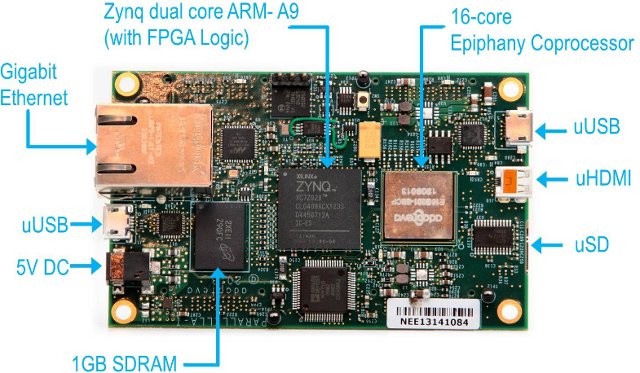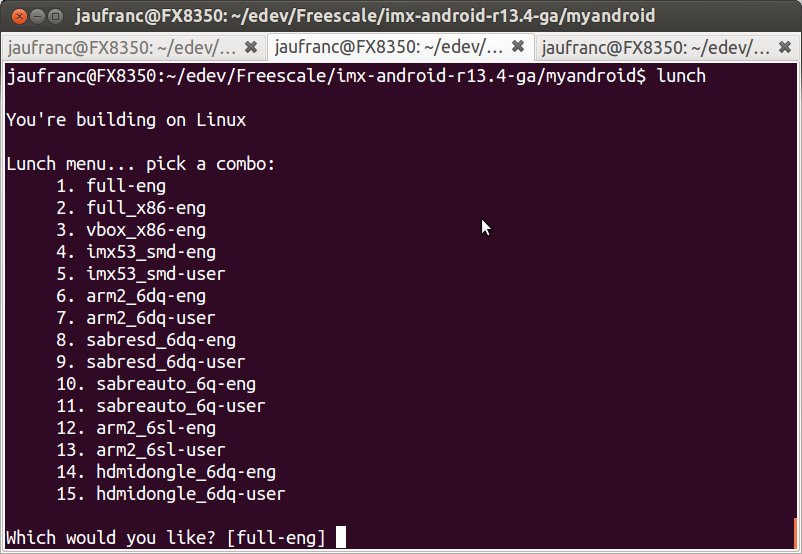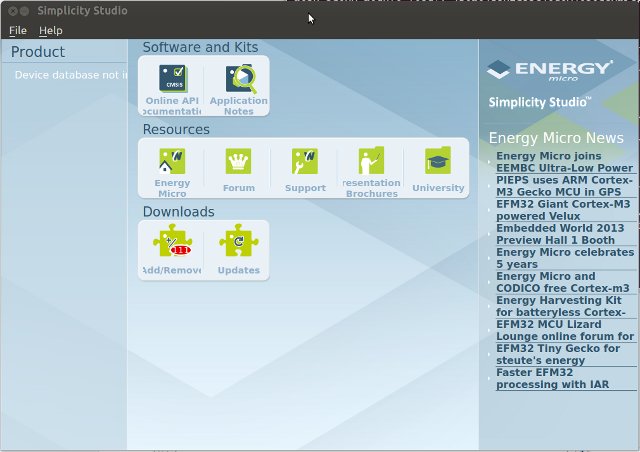Linaro 13.08 has been released with Linux Kernel 3.11-rc6 (stating), Kernel 3.10.9 (LSK – beta), and Android 4.3. This month is the first release based on Android 4.3, which was only pushed to AOSP at the end of last month. I can also see work on new SoCs/hardware this month with Texas Instruments Keystone II ARM Cortex A15+DSP SoC and Fujitsu AA9 board (Which processor?, I could not find out). A lot of work also appears to have gone in OpenEmbedded, further optimizations have gone into NEON optimized AES encryption in OpenSSL, and more. It’s also the first time I can see a Ubuntu Raring engineering build image for HighBank (Calxeda Energycore). Here are the highlights of this release: Android Engineering Android stack was tuned to achieve 100% CTS pass result on Android 4.3 Analyzing the UEFI EDK II boot loader for Android completed, implementation of fastboot application and USB […]
Linaro 13.07 Release With Linux Kernel 3.10.1 and Android 4.2.2
Linaro 13.07 has been released with Linux Kernel 3.10.1 (both baseline and stable versions), and Android 4.2.2. It’s summer time, so activity seems to have slowdown a bit, yet improvements have done to LAVA with the first LAVA Multi-purpose Prove (LMP) setup, and Linaro has released build with Linux 3.10.1, Ubuntu Raring, OpenEmbedded (ARMv8), and Android. For the very first time, there’s even an Android 4.2.2 community build for HiSilicon K3V2 hardware (HiSilicon Hi4511 development platform). Here are the highlights of this release: LAVA LAVA Core VExpress A9 test images no longer use the master image’s boot loader Support added for interactive bootloader commands. Support for OpenID / Crowd added for LAVA. LAVA Master images updated on images.validation.linaro.org LAVA Multi-node – Multi-Node support has an initial implementation which can support communication between nodes under test via the use of a GroupDispatcher. LAVA Lab Capabilities – LMP (LAVA Multi-purpose Probe) prototypes […]
$99 Parallella Supercomputer is Now Open Source Hardware
Parallella is a low cost supercomputer designed by Adapteva using Xilinx Zynq-7010/7020 FPGA+2x Cortex A9 SoC combined with Adapteva Ephipany 16 or 64 cores epiphany coprocessor. The project had a successful kickstarter campaign which allowed then to provide the 16-core version for $99, and the 64-core version for $750. The board will soon be shipped to people who pledged on kickstarter, and one of the promise of the campaign was to fully open source the platform, and today, they just fulfilled that. Before going into the details of the open source release, let’s have a look at the specs: SoC – Xilinx Zynq7000 Series (Z-7010 or Z-7020) Dual-Core ARM Cortex A9 with 512KB L2 Shared Cache Coprocessor – Epiphany Multicore Coprocessor. The Parallella-16 board includes the 16-core Epiphany-III processor The Parallella-64 board includes the 64-core Epiphany-IV processor System Memory – 1024MB DDR3L Boot Flash – 128 Mb QSPI Flash Indicators […]
Linaro 13.05 Release With Linux Kernel 3.10, Android 4.2.2, and Ubuntu Raring Ringtail
Linaro 13.05 has just been released with Linux Kernel 3.10-rc2 and Android 4.2.2. This is the first release with Ubuntu 13.04 (Raring Ringtail) images. There’s also Linux Linaro Stable (LSK) preview based on kernel 3.9.4. BeagleBone Black support has been added and preliminary hwpack and images are available, an Android Arndale image with virtual framebuffer is also available. You can now get a desktop environment (XFCE) on Aarch64 / ARMv8. Hardware packs with Real-time Linux kernel (PREEMPT_RT) can be downloaded for Pandaboard and Arndale. More work has gone into Aarch64, big.LITTLE HMP, and ARM virtualization (KVM). Finally an UEFI is available not only for Vexpress boards, but also Samsung Origen and Arndale boards, as well as Texas Instruments Pandabord and Beagleboard. Here are the highlights of this release: LAVA First prototype production run of LAVA Lmp completed, tested functional. Beaglebone Black is now running in LAVA. TC2s is now running […]
Linaro 13.04 Release With Linux Kernel 3.9 and Android 4.2.2
Linaro 13.04 has just been released. It features Linux Kernel 3.9-rc7 and Android 4.2.2. A lot of work has been done on ARMv8 (Cortex A53) with further work on OpenEmbedded, more testing, and updates to the GCC toolchain. Calxeda EnergyCore server has been added to LAVA, Origen Quad now gets hardware video acceleration in Android Jelly Bean. Still more cleanup has been done on the kernel side with regards to Samsung and ST SoC, and a big.LITTLE porting guide is now available (linaro login required). Here are the highlights of this release: LAVA Prototype of a new publishing system is used to overcome performance problems with android-build.linaro.org. Calxeda EnergyCore support is merged in LAVA, and an isolated system has been set up for web benchmarking. Fedora support is merged in LAVA. A user can submit LAVA jobs using a Fedora pre-built image. Boot commands are untangled from LAVA dispatcher. They’re now […]
Linaro 13.03 Release with Linux Kernel 3.9 and Android 4.2.2
Linaro 13.03 is now available, and features Linux Kernel 3.9-rc3 and Android 4.2.2. This month, Linaro has released their first Origen Quad Android image, as well as Tiny Android build for Arndale. The ALIP image listed in the download page is still based on Ubuntu 12.11, but as doc Bormental noticed earlier this month, the latest ALIP Quantal 13.03 image is available for download at https://releases.linaro.org/latest/ubuntu/quantal-images/alip. Some development tools (gcc, g++, vi, make..) are now included in Android, so you can develop and build natively from your Android device. Linaro has kept on cleaning the Linux kernel ARM tree for Exynos and ST Ericson SoCs. More work has been done on big.LITTLE for both IKS and HMP, as well as ARMv8 OpenEmbedded, and an initial GRUB port on ARM UEFI is now available. Here are the highlights of this release: Automation and Validation A simple CLI tool for communicating with […]
U-boot, Linux Kernel, and Android Patches for Freescale i.MX6 HDMI TV Dongles
We can now get some quad core Android mini PCs (e.g. Hi802, GK802) featuring Freescale i.MX6Q processor, Freescale has released full documentation and source code its development platforms, Hi802 / GK802 HDMI TV dongles are easily hackable, and there’s even an Ubuntu image for the devices. So it looks pretty good ,right? Well almost.. there are some patches and config for GK802 that have not been released by Richtechie, so we can’t modify the bootloader and Linux kernel. But this may change, as ARMTvTech forum user hste noticed some Freescale i.MX6 HDMI dongle patches om IMX Community website. Even though I’m not sure those are fully compatible with Hi802 / GK802, this could be a starting point. Today, I’ll provide the instructions to build u-boot, the linux kernel and Android ICS with those patches in a machine running Linux 12.04 64-bit. Patch Sets Descriptions There are two set of patches that […]
ARM MCU Development in Linux with Energy Micro’s Simplicity Studio, Eclipse, and CodeSourcery Toolchain
Quite a few months ago, I received an Energy Micro EFM32 Tiny Gecko Starter Kit, but I haven’t done much with it. But recently I saw a tweet from EnergyMicro about Simplicity Studio supports for Ubuntu, and I know it can be problematic to find proper tools for ARM MCU development in Linux, so I decided to give it a try. The first part is about Simplicity Studio, and energyAwareTools which are specific to Energy Micro, but the second part deals with setting up Eclipse and CodeSourcery ARM toolchain for MCU development which should be reusable for other MCUs from vendors such as Texas Instruments, NXP and STMicro. I’ve used a PC running Ubuntu 12.04 64-bit with the instructions below. Installing Simplicity Studio and energyAwareTools in Ubuntu Simplicity Studio is part of the 4 steps of the getting started guide with EFM32 MCUs. It has been available for Linux for […]






